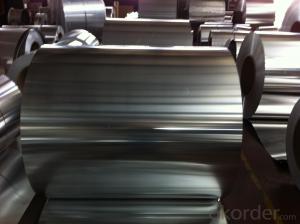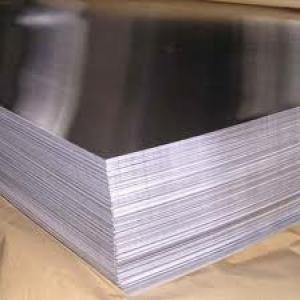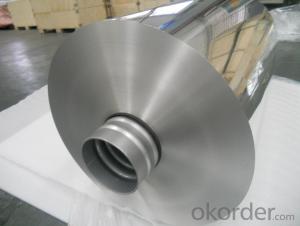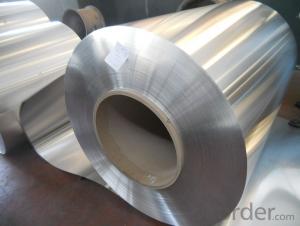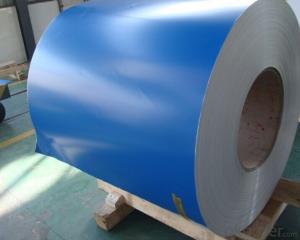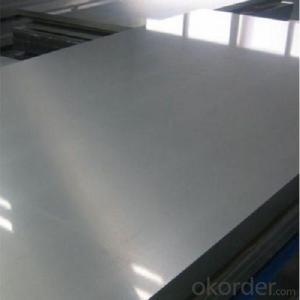Mill Finished Aluminium Sheet for Prepainted Color
- Loading Port:
- Shanghai
- Payment Terms:
- TT OR LC
- Min Order Qty:
- 5 m.t.
- Supply Capability:
- 50000 m.t./month
OKorder Service Pledge
OKorder Financial Service
You Might Also Like
Item specifice
1.Structure of Mill Finished Aluminium Sheet for Prepainted Color
Mill Finished Aluminium Sheet for Prepainted Color is one semi-finished aluminium material. This strip can be rolled down to aluminium coil,sheet,circle ect. The alloy AA1050 is widly used in building, industry ect. Its weight is much lower than steel. So many customers choosed aluminium material instead of steel.
2. Main features of the product
a.Competitive price---We have our own mills and can produce mill finished aluminium coils, so we can control the production cost better.
b.Professional after-sale service---We have more than 15 years exportation experience and you need not worry about the exporation problems.
c.Fast delivery time---We can control the delivery time within 35 days.
3. Image
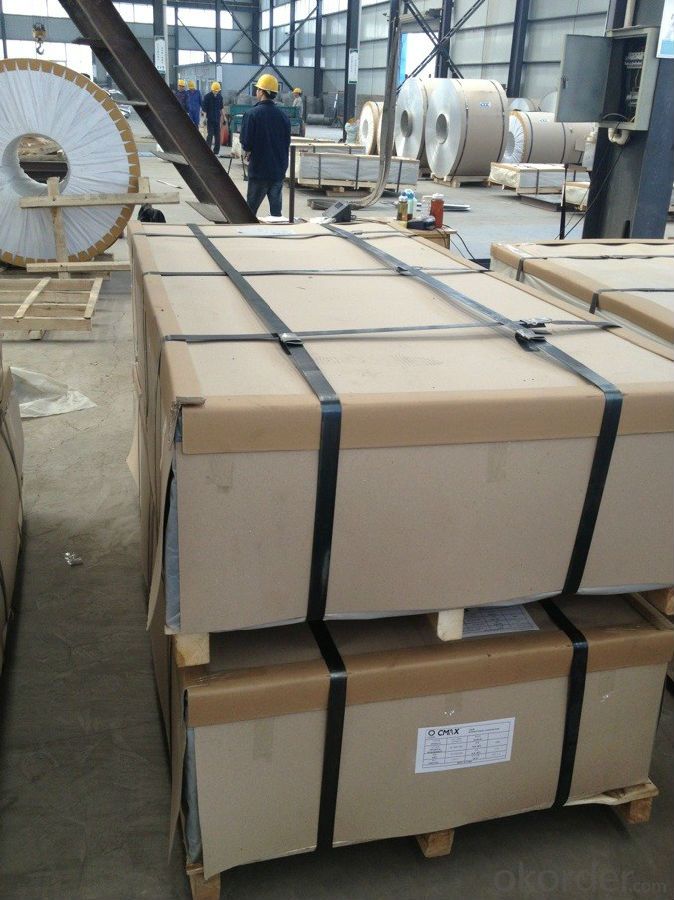
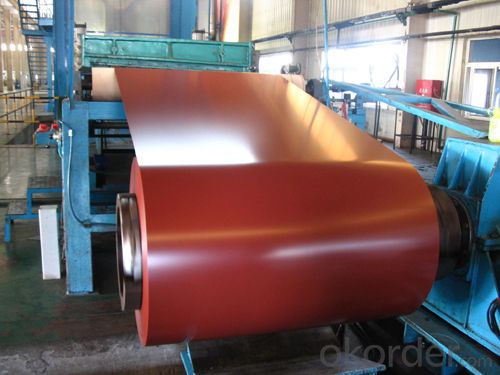
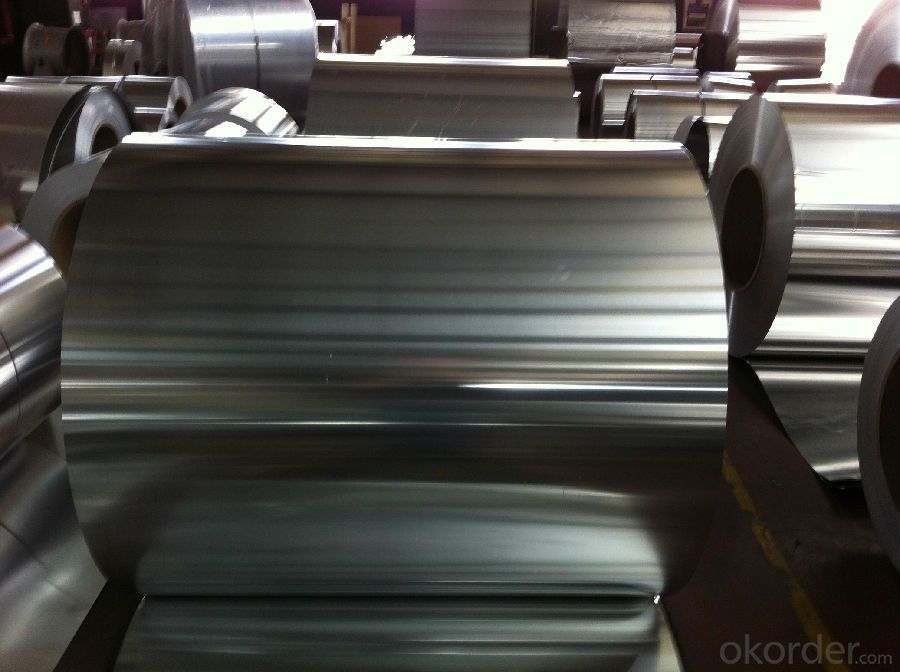
4. Product Specification
| Alloy | Temper | Thickness | Width | Weight |
| AA3003 | H14 | 0.2MM-3MM | 1000MM-1800MM | 2 TONS |
5.FAQ:
What is the quality standard?
---Usually our standard is GB3880-2006
What is the largest width?
---It is 2300mm
What is the MOQ?
---Usually we can accept 80 tons.
- Q:What is the typical corrosion resistance of aluminum sheets?
- The typical corrosion resistance of aluminum sheets is quite high. Aluminum naturally forms a protective oxide layer on its surface, which helps to prevent further corrosion. This oxide layer acts as a barrier, preventing moisture and other corrosive elements from reaching the underlying metal. Additionally, aluminum is also highly resistant to many common types of corrosion, such as rusting and pitting. However, the corrosion resistance of aluminum can vary depending on various factors, such as the alloy composition, surface treatment, and exposure to harsh environments. Overall, aluminum sheets are known for their good corrosion resistance, making them suitable for a wide range of applications in various industries.
- Q:Can aluminum sheets be used for electrical conductors?
- Yes, aluminum sheets can be used for electrical conductors. Aluminum is a good conductor of electricity and is commonly used in various electrical applications such as wiring, cables, and power transmission lines.
- Q:Is aluminum sheet fire-resistant?
- Aluminum sheet is not inherently fire-resistant, but it does have certain properties that make it more fire-resistant than other materials. Aluminum has a high melting point, which means it can withstand high temperatures without melting or catching fire. Additionally, aluminum has a low thermal conductivity, meaning it does not easily transfer heat. This makes it more difficult for fire to spread across an aluminum sheet. However, it is important to note that aluminum can still be affected by fire. When exposed to extreme heat, aluminum can weaken and lose its structural integrity. It can also become more susceptible to burning if exposed to certain chemicals or intense flames. To enhance the fire resistance of aluminum sheet, it can be coated with fire-retardant materials or treated with fire-resistant coatings. These additional measures can help to further reduce the risk of fire and improve the overall fire performance of the aluminum sheet. In summary, while aluminum sheet is not completely fire-resistant, it does possess certain characteristics that make it more resistant to fire than other materials. However, it is crucial to take appropriate precautions and use additional fire-resistant treatments when necessary to ensure maximum safety.
- Q:What is the typical electrical conductivity of aluminum sheets?
- The typical electrical conductivity of aluminum sheets is around 35.0 to 45.0 MS/m (mega siemens per meter) or 35,000 to 45,000 S/m (siemens per meter). Aluminum is known for its excellent electrical conductivity, which is approximately 61% of the conductivity of copper. This makes aluminum a popular choice for various electrical applications, such as wiring, power transmission lines, electrical busbars, and electrical equipment components. The conductivity of aluminum allows for efficient and reliable flow of electric current, making it a valuable material in the electrical industry.
- Q:What is the price range of aluminum sheets?
- The cost of aluminum sheets can fluctuate due to multiple elements, including the sheet's dimensions, thickness, and quality, as well as the supplier and market circumstances. Typically, the price of aluminum sheets can vary between approximately $0.50 and $5 per square foot. Thinner sheets or lower-quality aluminum tend to occupy the lower end of this price spectrum, while thicker sheets or higher-quality aluminum tend to fall on the higher end. It is advisable to compare prices among various suppliers to secure the most advantageous offer.
- Q:I am doing a project on Aluminum it has 13 protons just to make sure everyones on the same page. How much of it is left or exsits? Also how does it behave?
- As Vincent noted, aluminium is an abundant element in the earth's crust. It occurs in all clay minerals. Its main ore, bauxite(a mixture of aluminium hydroxides) is still available in vast deposits; particularly in Australia and South America. Aluminium is a reactive element, and so is not found in nature in the elemental form. Aluminium is a metal, and an amphoteric substance; that is; it reacts with both acids and bases.
- Q:Are the aluminum sheets suitable for manufacturing transportation containers?
- Yes, aluminum sheets are suitable for manufacturing transportation containers. Aluminum is lightweight, durable, and corrosion-resistant, making it an ideal material for containers used in transportation. It offers high strength-to-weight ratio and can withstand harsh conditions, making it suitable for various modes of transportation such as trucks, trains, and ships. Additionally, aluminum is recyclable, making it an environmentally friendly choice for container manufacturing.
- Q:Can aluminum sheets be used for reflective insulation?
- Yes, aluminum sheets can be used as reflective insulation. Aluminum has excellent reflective properties, allowing it to reflect heat and light effectively. This makes it a suitable material for insulating applications where reflecting radiant heat is desired, such as in roofs, walls, or attics.
- Q:What are aluminum sheets used for?
- Aluminum sheets have a wide range of uses due to their unique properties and versatility. One of the most common applications is in construction, where aluminum sheets are used for roofing, siding, and cladding. Their lightweight nature, corrosion resistance, and durability make them ideal for these purposes. Aluminum sheets are also widely used in the transportation industry. They are commonly utilized in the manufacturing of automobiles, trains, and aircraft due to their high strength-to-weight ratio. Additionally, aluminum sheets are utilized in the production of trailers, truck bodies, and shipping containers, as they provide a lightweight yet sturdy solution. Another important application of aluminum sheets is in the manufacturing of consumer products. They are used for making household appliances, cookware, and electronics due to their excellent thermal conductivity and resistance to rust and corrosion. Aluminum sheets are also employed in the production of signage, billboards, and displays due to their ability to withstand various weather conditions. In the packaging industry, aluminum sheets play a crucial role. They are commonly used for making cans, foils, and lids due to their impermeability to light, moisture, and oxygen. Aluminum sheets help preserve the freshness and quality of food and beverages. Furthermore, aluminum sheets have various industrial applications. They are utilized in the fabrication of industrial machinery, equipment, and tools due to their excellent machinability and strength. Aluminum sheets are also used in the production of heat exchangers, solar panels, and electrical conductors due to their thermal and electrical conductivity. In summary, aluminum sheets are utilized in construction, transportation, consumer products, packaging, and various industrial applications due to their lightweight, corrosion resistance, durability, thermal conductivity, and electrical conductivity.
- Q:How do you prevent galvanic corrosion when using aluminum sheets with saltwater?
- To prevent galvanic corrosion when using aluminum sheets with saltwater, there are several steps that can be taken: 1. Apply protective coatings: One effective method is to apply a protective coating to the aluminum sheets. This can be done by using specialized marine-grade paints or coatings that are designed to prevent corrosion in saltwater environments. The coating acts as a barrier between the aluminum and the saltwater, reducing the likelihood of galvanic corrosion. 2. Use isolation materials: Another approach is to use isolation materials, such as rubber or plastic gaskets, between the aluminum sheets and any dissimilar metals that may come into contact with them. These materials prevent direct contact between the aluminum and other metals, minimizing the risk of galvanic corrosion. 3. Galvanic corrosion inhibitors: Adding galvanic corrosion inhibitors to the saltwater can help mitigate the risk of corrosion. These inhibitors work by creating a protective layer on the aluminum surface, preventing the electrochemical reactions that lead to galvanic corrosion. 4. Cathodic protection: Employing cathodic protection techniques can also help prevent galvanic corrosion. This involves connecting the aluminum sheets to a sacrificial anode made from a more active metal, such as zinc or magnesium. The sacrificial anode corrodes instead of the aluminum, protecting it from galvanic corrosion. 5. Proper maintenance: Regularly cleaning and maintaining the aluminum sheets is crucial for preventing galvanic corrosion. Saltwater and other contaminants can accumulate on the surface, promoting corrosion. Cleaning the sheets with fresh water and removing any salt deposits can help prolong their lifespan and reduce the risk of galvanic corrosion. It is important to note that these preventive measures should be implemented in conjunction with proper material selection and design considerations. Consulting with corrosion experts or engineers who specialize in marine applications can provide further guidance on the specific requirements and best practices for preventing galvanic corrosion when using aluminum sheets with saltwater.
1. Manufacturer Overview |
|
|---|---|
| Location | |
| Year Established | |
| Annual Output Value | |
| Main Markets | |
| Company Certifications | |
2. Manufacturer Certificates |
|
|---|---|
| a) Certification Name | |
| Range | |
| Reference | |
| Validity Period | |
3. Manufacturer Capability |
|
|---|---|
| a)Trade Capacity | |
| Nearest Port | |
| Export Percentage | |
| No.of Employees in Trade Department | |
| Language Spoken: | |
| b)Factory Information | |
| Factory Size: | |
| No. of Production Lines | |
| Contract Manufacturing | |
| Product Price Range | |
Send your message to us
Mill Finished Aluminium Sheet for Prepainted Color
- Loading Port:
- Shanghai
- Payment Terms:
- TT OR LC
- Min Order Qty:
- 5 m.t.
- Supply Capability:
- 50000 m.t./month
OKorder Service Pledge
OKorder Financial Service
Similar products
New products
Hot products
Related keywords
